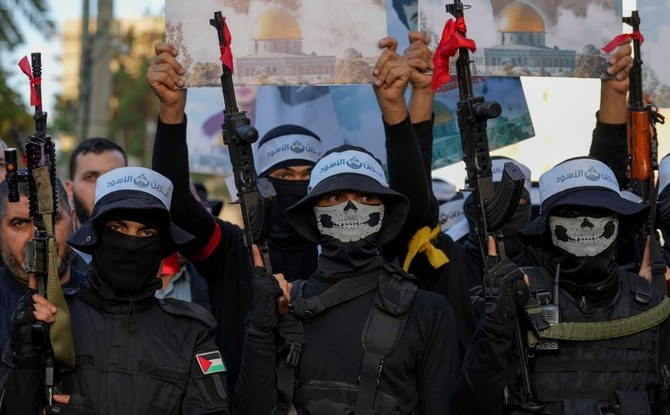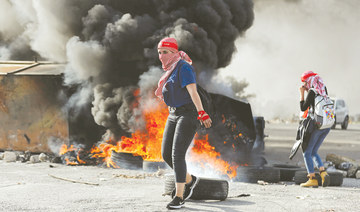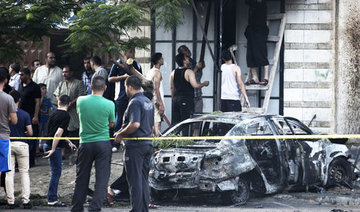GAZA CITY: Financial sanctions imposed on Iran in addition to ongoing demonstrations against the clerical regime have sharply affected the flow of financial support to several key Palestinian factions.
Palestinian political analyst Mustafa Ibrahim told Arab News that the length of the financial crisis might depend on Iran’s ability to control its internal problems, which have resulted in changes to its foreign policy.
Ibrahim said that Iran had in recent years expanded its sphere of influence in various countries, including Syria, Yemen, Iraq and Lebanon, which also led to a fall in funding for Palestine.
“We are working on an emergency plan,” a worker in one of the Islamic Jihad’s research institutions told Arab News.
Islamic Jihad has been hit hard by the financial crisis because it relies heavily on Iranian support.
Some Palestinian factions — most notably Hamas and Islamic Jihad, as well as the Popular Front for the Liberation of Palestine (PFLP) — have received financial support from Iran for many years.
Hamas, which suffered from a suffocating financial crisis following a cessation of Iranian support after the organization’s exit from Syria, has searched for various alternative sources of funding.
The end of Iranian support also affected Hamas government work in Gaza, forcing the group to become more reliant on internal revenue.
Employees working in Islamic Jihad institutions in the Gaza Strip complained that they had failed to receive wages since October, and that since about a year ago, their salaries had been halved.
The employee at Islamic Jihad’s research institution added: “Not all workers in our institution or other institutions can come daily ... so there are some who cannot come to the office ... but only partially. It is paid to us for transportation expenses only sometimes.”
He told Arab News: “Our salaries were cut in half a year ago as a result of the financial crisis, and now, for three months, we have not received any salary.
“There is no horizon when the crisis will be overcome.”
Islamic Jihad — considered the second major military force in the Gaza Strip after Hamas — is not alone in suffering from the crisis.
The PFLP has also been affected and some of its workers within its institutions receive only a small percentage of their salaries.
An informed source in Islamic Jihad, who refused to reveal his identity, said that the organization was facing a suffocating financial crisis as a result of “the delay in the arrival of Iranian support and the difficulty in obtaining other sources of funding in light of international restrictions on financial transfers.”
The source added that the crisis was not confined to the Islamic Jihad in the Gaza Strip, but rather extends to its institutions and locations abroad.
The crisis in the Gaza Strip is more severe than others as a result of the limited sources of funding and the difficulties of transfers, they said.
The source indicated that the crisis — if prolonged — might lead to the closure of some institutions in order to reduce expenses.
Islamic Jihad has received financial, military and logistical support from Iran over many years, as has Hamas, which previously suffered from its own financial crises.
Islamic Jihad was exposed to several financial difficulties, the most prominent of which came in 2015 amid the war in Yemen, which forced it to close and merge several of its institutions operating in the Gaza Strip.
Political analyst Ibrahim said that Hamas “certainly has other financial sources, while the Islamic Jihad and other factions depend on limited sources of funding and consider Iran a main source for it.”
Ibrahim told Arab News: “This is an old and new crisis. There are always financial crises that the Palestinian factions suffer from.”
He added that although the group will face setbacks as a result of the funding crisis, it will likely overcome them due to experience.














